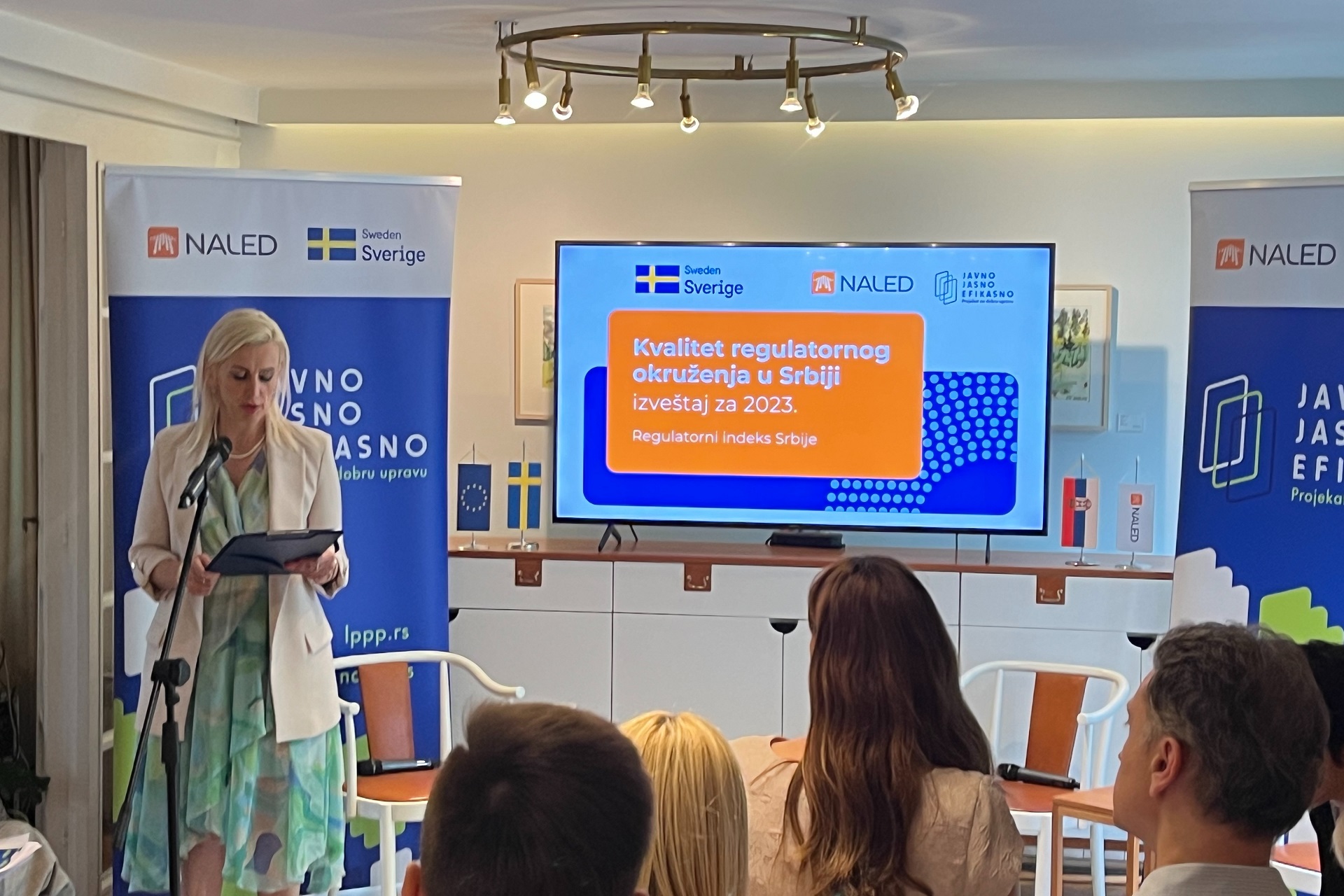Faster regulatory reforms needed for economic development
Legislative activity in the country has noticeably slowed down this year, as shown by the results of the latest Quarterly Report by NALED on the status of regulatory reform in Serbia. While 164 different regulations – laws, sub-laws, and strategic documents – were passed in the first three quarters of 2023, only 119 regulations were adopted in the same period this year, which is nearly 30% less.
Political processes have a significant impact on the pace of regulation adoption, as confirmed in this case – parliamentary elections, scheduled for the end of October, were held in mid-December last year, after which the government was in a technical mandate for another five months.
- The new government was elected only at the beginning of May, which explains the slower regulatory activity in the first half of the year. However, this trend continued into the third quarter, and the anticipated government reshuffle could further slow down the legislative process. The positive economic results achieved so far, as measured by the acceleration of Serbia's economic growth rate, which is projected to reach up to 4% this year according to the International Monetary Fund, provide a good starting position, but this growth rate could be even higher with a faster pace of reforms – says Mihailo Gajić, Head of the Research and Analytics Unit at NALED.
Adopted Reform Agenda, but Faster Alignment with EU Regulations Needed
It is especially important to improve the results in harmonizing national regulations with EU legislation. The previous National Program for the Adoption of EU Acquis for the period 2022-2025 (NPAA), which was replaced by a new one at the end of October, foreseen the adoption of 62 regulations during the first three quarters of this year. However, only one regulation was adopted in that period. According to the document, 179 regulations should have been adopted by the end of the year.
- A positive point in the domain of European integration is the adoption of the Reform Agenda – the Instrument for Reform and Growth for the Western Balkans, as an important overarching document for planning and implementing reforms, which unlocked access to European funds from the Growth Plan, totaling 1.58 billion euros. One of NALED's decade-long initiatives for the reform of parafiscal charges and the introduction of an electronic public register of all taxes and fees became part of the Agenda through the introduction of mandatory non-cash payment options for all taxes and fees on the eGovernment portal, which will make the list of all non-tax levies visible in one place – says Gajić.
Quality Regulations Are a Prerequisite for Accelerating Growth
One of the prerequisites for economic growth is a conducive regulatory framework within which business activities take place. This is also demonstrated by the recent Nobel Prize in Economics awarded to Daron Acemoglu, James Robinson, and Simon Johnson for their research in the field of institutional prerequisites for growth.
Regulatory activity does not only mean adopting new regulations that impose new administrative requirements on businesses, but also adopting regulations that reduce transaction costs, eliminate uncertainty in business, and ensure the smooth flow of economic activity. Furthermore, an important aspect of the regulatory process is the amendment of existing regulations, when new problems are identified or better solutions are found. An example of this is the Land Consolidation Law, which has been in preparation since 2019, as well as the necessary amendments to regulations governing property rights in Serbia, including issues related to legalization and registration in the land registry. We are also witnessing major changes in the labor market that require the modernization of labor legislation and better regulation of modern and flexible forms of labor engagement.
- In order for the country to solve numerous accumulated problems, as well as act proactively before they arise, it is necessary to improve legislative activity and public-private dialogue. Foreign direct investments are already at a high level – last year they amounted to 4.5 billion euros, or 6% of GDP, which is expected to remain the same this year, along with public capital investments, which are expected to increase from 6.4% of GDP in 2023 to 7.9% this year. More attention should be paid to improving the regulatory environment as a mechanism for accelerating growth – concludes Gajić.




